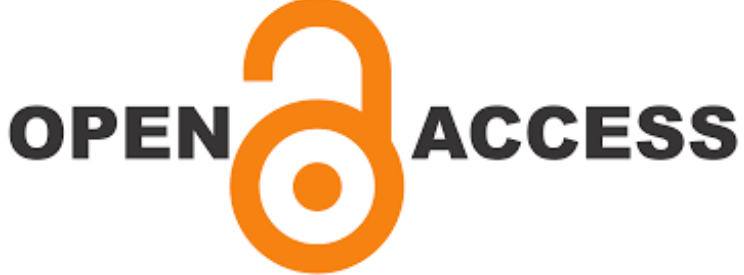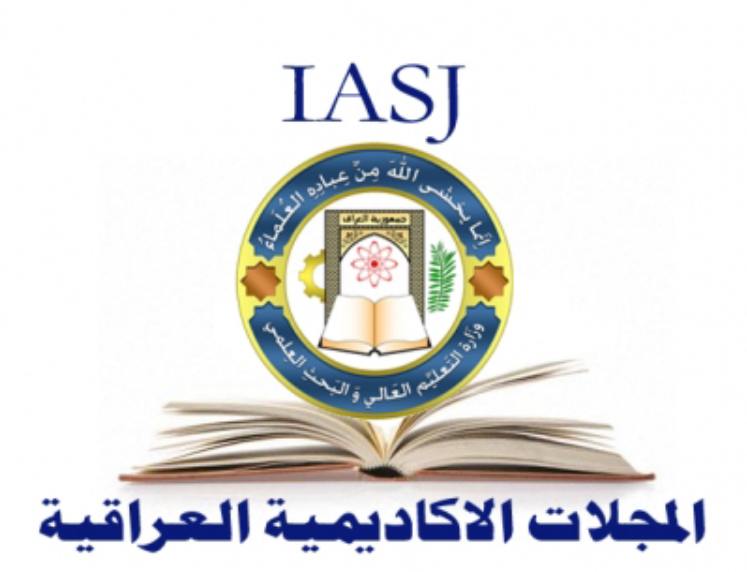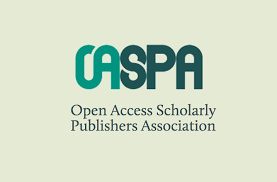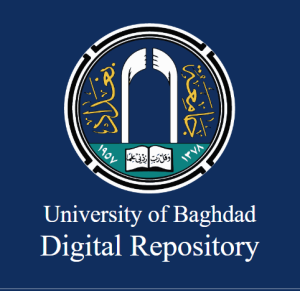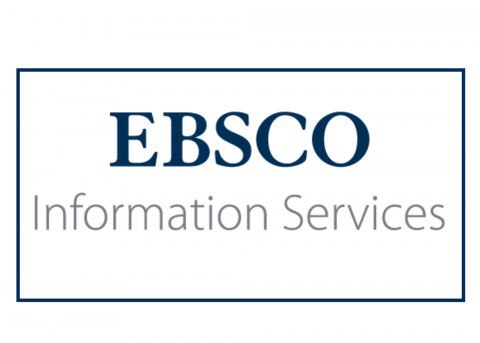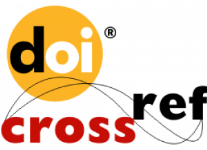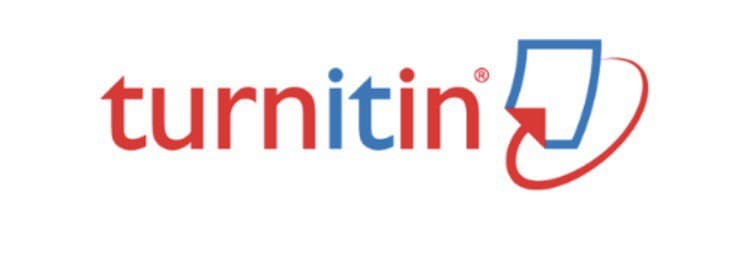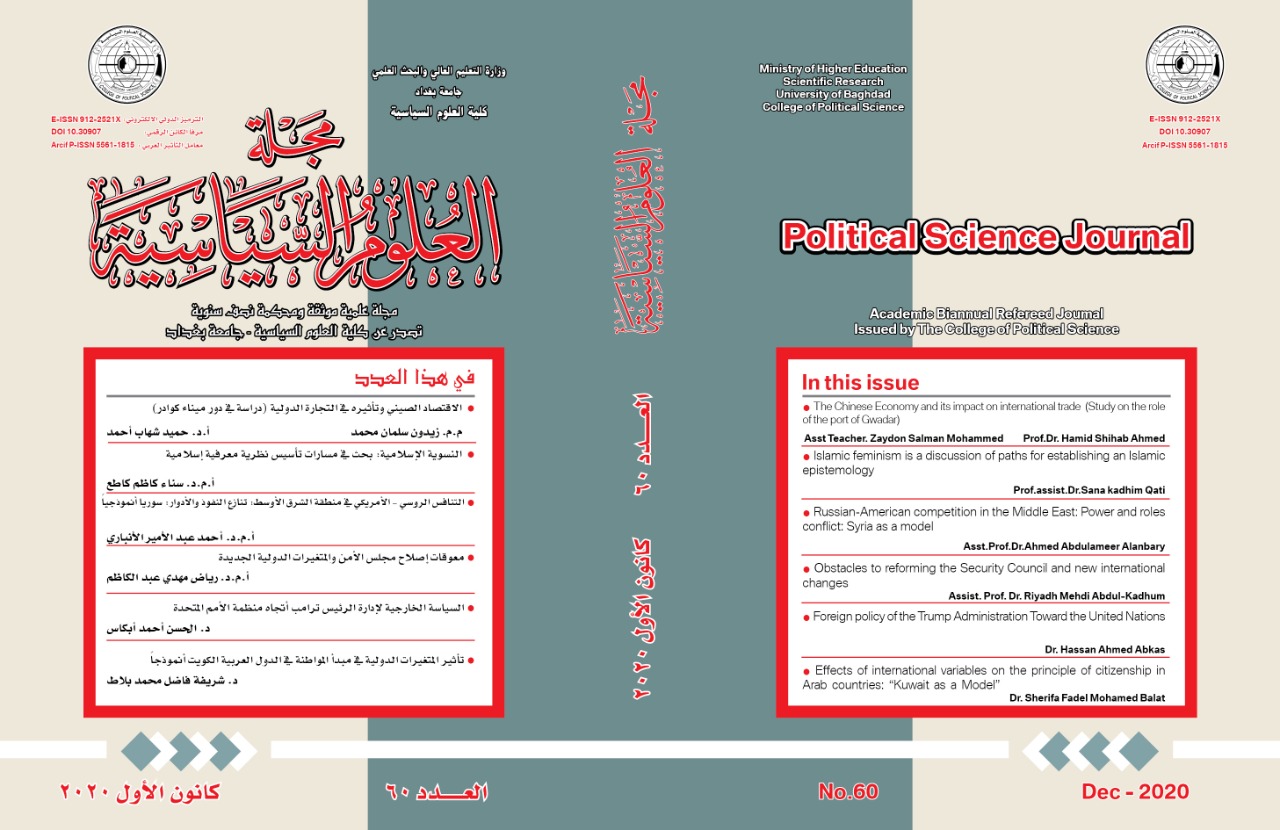اشكالية التغيير السياسي في الجزائر
DOI:
https://doi.org/10.30907/jj.v0i59.463الكلمات المفتاحية:
التغيير السياسي، الشرعية السياسية، التعددية السياسية، الشرعية الثورية، الانتقال الديمقراطي.الملخص
يرمي البحث إلى دراسة أزمة التغيير السياسي انطلاقا من ثلاثة مراحل، الأولى تركز على أزمتي الشرعية السياسية والتأجيل الديمقراطي باعتبارهما مسألتان أساسيتان في تحليل ظاهرة الصراع على السلطة من خلال الجدلية القائمة بين مفهوم الشرعية التاريخية والهشاشة المؤسسية التي تطورت من الناحية الزمنية من بداية نشأة الدولة في عام 1962 إلى غاية مرحلة التعددية الحزبية ووقف المسار الانتخابي في مرحلة التسعينيات من القرن الماضي ، بينما تركز الثانية على مسألة احتكار السلطة في مرحلة ما بعد الإرهاب والمصالحة الوطنية وفقا لاعتبارات سياسية واجتماعية وأمنية كثيرة بغرض تمديد عمر النظام و تجنب مطالب التغيير السياسي التي أفرزتها ثورات الربيع العربي من خلال آليات شراء السلم الاجتماعي ومبررات سياسات التقشف المختلفة، أما المرحلة الثالثة فقد ركزت على مبررات رفض التغيير السياسي لأجل الاستمرارية في الحكم على اعتبار أن الأبعاد الصراعية والتمثيلية لمبررات رفض التغيير في مرحلة ما قبل نهاية حكم بوتفليقة لم تقتصر على مشكلات الطموح والصراع السياسي من أجل خلافة الرئيس وإنما تعدت إلى عوامل أخرى لأجل ضمان حماية المصالح عن طريق مساندة تمديد ولايته إلى فترة رئاسية خامسة .
المراجع
(2 ) ناصر الدين سعيدوني ، الجزائر منطلقات وأفاق مقاربات للواقع الجزائري من خلال قضايا ومفاهيم تاريخية، ط1 ،بيروت ، دار الغرب الإسلامي،2000،ص 178.
(3) عادة ما ترتبط إشكالات مفهوم السلطة السياسية بموضوع القدرة على التأثير بالنسبة للأشخاص أو الأحداث من خلال استخدام مجموعة من الوسائل الخاصة بالإقناع والإكراه قصد توجيه السلوك وتحقيق الأهداف والغايات وتأمين الطاعة للمزيد أنظر:
Lahouari addi , Etat et pouvoir approche méthodologique, alger, office des publications universitaires, P16-30
(4)حسن ملحم ، التحليل الاجتماعي للسلطة ، الجزائر، منشورات دحلب ،(د س ط)، ص234-235.
(5) خميس حزام والي، اشكالية الشرعية في الانظمة السياسية العربية مع اشارة الى تجربة الجزائر، بيروت ، مركز دراسات الوحدة العربية،2008، ص23.
(6) حسن ملحم، نفس المرجع ، ص44-45
(7) ثامر كامل، الدولة في الوطن العربي على ابواب الالفية الثالثة، بغداد ، بيت الحكمة ،2001، ص168-175.
(8) حسن ملحم، نفس المرجع ، ص68
(9)عزمي بشارة »في الثورة والقابلية للثور « ، سلسلة( دراسات وأوراق بحثية)، المركز العربي للأبحاث ودراسة السياسات، معهد الدوحة، 2011 ، ص71-72.
(10) بلقاسم بوقره ، من الاستبداد الشرقي إلى النظام العالمي الجديد (التاريخ الاجتماعي للجزائر تحت المجهر) ، ط2، الجزائر، ديوان المطبوعات الجامعية، 2008،ص206.
(11) أحمد ناصوري » النظام السياسي وجدلية الشرعية والمشروعية « ، مجلة دمشق للعلوم الاقتصادية والقانونية ، المجلد 24، العدد الثاني ، 2008، ص381-384.
(12) أندرياس فير ايكه ، بيرند مايرهوفر،فرانتس كوهوت ،اطلس العلوم السياسية، ترجمة سامي ابويحي، بيروت ، المكتبة الشرقية ،2012، ص85.
(13) ثناء فؤاد، أليات التغيير الديمقراطي في الوطن العربي ، بيروت ، مركز دراسات الوحدة العربية ،2004،ص67.
(14) خميس حزام والي، نفس المرجع ، ص43-47
(15) حسنين توفيق ابراهيم ، النظم السياسية العربية الاتجاهات الحديثة في دراستها ، بيروت ، مركز دراسات الوحدة العربية ،2005،ص90-99 .
(16) تتمثل أهداف ثورة التحرير الوطنية في تحقيق الاستقلال الوطني وإقامة دولة ديمقراطية اجتماعية ضمن إطار المبادئ الإسلامية واحترام جميع الحريات الأساسية دون تمييز عرقي أو ديني بالإضافة إلى تحقيق وحدة شمال إفريقيا في إطارها الطبيعي العربي والإسلامي كما تتميز هذه الثورة بكونها ليست طبقية ولم تأت نتيجة توافق سياسي وحزبي وأن الالتحاق بها كان من مختلف الفئات الاجتماعية والتشكيلات السياسية .... أنظر / فاضلي إدريس، حزب جبهة التحرير الوطنيFLN عنوان ثورة ودليل دولة نوفمبر 1954-2004 ، الجزائر ، ديوان المطبوعات الجامعية 2004 ، ص 87-91.
(17) من مميزات هذه المرحلة : تحديد وحدة الهدف في تحقيق الاستقلال وإقامة جمهورية ديمقراطية واجتماعية وإدانة المصالية وإيديولوجية الإدماج ، إنشاء مجلس وطني للثورة ولجنة للتنسيق والتنفيذ تحولت في عام 1958 إلى حكومة مؤقتة للجمهورية الجزائرية GPRA، بالإضافة إلى بروز خلافات وصراعات بين الأعضاء بسبب مبدأ أولوية الداخل على الخارج la primauté de l’intérieur sur l’éxtérieur والسياسي على العسكري le primat du politique sur le militaire ، وضعف الحكومة المؤقتة وصراعها الخفي مع قيادة الأركان ... مما أدى إلى بروز أزمة صيف 1962 فيما بعد . أنظر على سبيل المثال / الأمين شريط ،التعددية الحزبية في تجربة الحركة الوطنية(1919-1962)،الجزائر ،ديوان المطبوعات الجامعية، 1998 ، ص 85 وما بعدها .وكذلك:
Gilbert Meynier. Histoire intérieure du FLN1954-196 , Alger, casbah editions, 2003 ,p275 à suiv. et Leila Benammar Benmansour , La Crise de L’été 1962 , Alger , ,2011 ,p18 à suiv.
(18) يفسر البعض على سبيل المثال العلاقة (الشعورية – الذهنية) مع المؤسسات والأملاك العامة بمفهوم "البايلك Beylek " الموروث عن العهد التركي وارتباطاته الثقافية بالاستعمار الفرنسي ... أنظر / عشراتي سليمان ،الشخصية الجزائرية الأرضية التاريخية والمحددات الحضارية ، الجزائر، ديوان المطبوعات الجامعية، 2002،ص188-190.
)19) لقد أفضى الصراع على السلطة في مرحلة توطيد الدولة بعد الاستقلال إلى بروز نظام أحادي يتميز بديكتاتورية رئاسية وصلاحيات واسعة من خلال دستور تسوية وواجهةDe Compromis Et De Facade (دستور سبتمبر1963) ، و فترة حساسة من الصراع على السلطة والخلافات الإيديولوجية بين أنصار اتجاهات الديمقراطية الليبرالية والديمقراطية الاجتماعية (الاشتراكية) والتوترات المدنية والعسكرية.. مما أفقد الشرعية السياسية للنظام وعجل بعملية الانقلاب عليه في عام 1965 باسم الشرعية الثورية وبناء الدولة من القاعدة Costruction De l’Etat par la Base(دستور 1976) . أما مرحلة الانفتاح والتعددية فقد أسفرت من جهتها على دستور أزمة Constitution de Criseفي فبراير 1989 يدعم الليبرالية السياسية والتعددية الحزبية بمرحلة انتقالية Une Période Transitoire تمتد من جانفي / 1992 الى غاية صدور دستور جديد في نوفمبر/ 1996... للمزيد حول هذه الدساتير والأوضاع المصاحبة لها أنظر/ Abdallah bougoufa, Le droit constitutionnel histoire et constitutions de la république algerienne(La mémoires Historique-Politique-Juridique),algerie, dar elhouda,2008,P38àsiuv. . )20) حول علاقة الجيش بالسلطة قبل وبعد الاستقلال أنظر مثلا/
Abdelkaer Yefsah, « L’armée et le pouvoir en algérie de 1962 à 1992 », revue du monde musulman et de la méditeranée, vol 65, N 1, 1992, p78-86.
)21) انظر أسباب الانتقال الديمقراطي وعوامل فشله في هذه المرحلة :
Madjid Benchikh, « Les obstacles au processus de démocratisation en Algérie », revue du monde musulman et de la méditerranée,V 65,N1,1992,P107-114
(22)Khaled chaib , bouteflika le president et son bilan le defi, 4 editions, Alger, les editions elhikma, 2004,p70 .
(23) ثناء فؤاد، المرجع نفسه، ص154-156
(24)بشير محمد الخضرا، النمط النبوي –الخليفي في القيادة السياسية العربية ..والديمقراطية ، بيروت ، مركز دراسات الوحدة العربية،2005، ص527-530.
(25)Gene Sharp, de la dictature à la démocratie un cadre conceptual pour la liberation , traduit de l’américain par Dora Atger,paris,l’harmattan,2009,p62-64.
(26) مصطفى هميسي، من بربروس الى بوتفليقة كيف تحكم الجزائر؟ الجزائر، دار هومة للطباعة والنشر والتوزيع، 2011، ص416 ومابعدها.
(27) انظر/ حوار مع الرئيس السابق الشاذلي بن جديد مع مجلة صوفيا للدراسات الاسياوية (اليابانية) في صحيفة الخبرعدد 16/ 10/2012، ص6-7.
(28) عمر صدوق، أراء سياسية وقانونية في بعض قضايا الأزمة، الجزائر، ديوان المطبوعات الجامعية،1995، ص72.
(29) المرجع نفسه، ص94
(30) فوزي أوصديق، النظام الدستوري الجزائري ووسائل التعبير المؤسساتي، الجزائر، ديوان المطبوعات الجامعية،2008 ،ص37.
(31) اشتملت الاصلاحات الجزئية على بعض الجوانب الشكلية القانونية بهدف التكيف مع متطلبات المرحلة الجديدة وتمديد عمر النظام لفترة أخرى ، كتعديل قوانين الاحزاب السياسية(قـانـون عـضـوي رقم 12- 04 مـؤرخ في 12 يــنـــايــر ســـنــة 2012 ) والجمعيات (قـانون رقم 12- 06 مؤرخ في 12 يناير سنة 2012 ) والإعلام ( قـانـون عـضـوي رقم 12- 05 مـؤرخ في 12 يناير سنة 2012)وقانون الانتخابات (قانون عضوي رقم 12- 01 مؤرخ في 12 يناير سنة2012) ،و استحداث هيئة وطنية للإشراف على الانتخابات وتنظيمها تتكون من قضاة وممثلي الأحزاب .. بالإضافة إلى ترقية حقوق المرأة السياسية و تنظيم انتخابات تشريعية ومحلية في نفس العام، وتغيير بعض الشخصيات المحسوبة على النظام في العديد من مواقع المسؤلية كالوزراء والولاة ورؤساء الأحزاب والسفراء ....
(32) بسبب انشاء أحزاب سياسية (7 احزاب) قبل تنظيم تشريعيات 2012 من رحم احزاب قديمة كحزب تجمع امل الجزائر(تاج) الذي جاء من حركة حمس الاسلامية و فاز بمقاعد برلمانية في الانتخابات التشريعية بل واصبح من اهم احزاب التحالف الرئاسي الموالية للسلطة رفقة الحركة الشعبية الجزائرية ، وجبهة التغيير الوطني التي اندمجت فيمابعد مع حركة حمس ، بالاضافة الى انشاء حزب العدالة والتنمية بقيادة عبد الله جاب الله واحزاب اخرى كحزب الحرية والعدالة وجبهة المستقبل ، وحزب جيل جديد .... وغيرها. علما ان عملية انشاء الاحزاب كانت مجمدة مند 1999 ولم تظهر إلا بعد أحداث الربيع العربي كما انه سرعان ماتم تقييد تأسيسها من جديد الى غاية أفريل 2019 بعد استقالة الرئيس بوتفليقة واندلاع حراك سياسي شعبي يطالب بالتغيير الشامل لجميع رموز النظام والإعلان من جديد عن اعتماد أحزاب وجمعيات وطنية اخرى ، ونفس الشيء بالنسبة للنشاط النقابي المستقل..
(33) حسب الامينة العامة لحزب العمال برلمان 2012 مزيف ولايمثل سوى 20 بالمائة من الشعب وان اغلب اعضائه من رجال الاعمال وبارونات الاستيراد .(الخبر، عدد 13/11/2012، ص2).
(34) انظر مثلا ماقاله رئيس حزب جبهة التحرير الوطني السابق عبد العزيز بلخادم في : الشروق عدد 13/11/2012 ص5.
(35) طيب تيزيني ، (أسئلة الإصلاح الوطني الديمقراطي العربي : سوريا نموذجا) ، المستقبل العربي ، عدد 318، أوت 2005، ص 83.
(36) انظر / كريبش نبيل، »بعض أوجه التضارب والانسجام بشأن الأزمة السورية: موقف الجزائر والجامعة العربية نموذجا « ، المجلة الافريقية للعلوم السياسية، مجلد 3 ،عدد 1، 2014.
(37) انظر/ الحوار مع رئيس الحكومة السابق احمد بن بيتور في صحيفة الخبر عدد 10-12-2012،ص2.
(38) لقد جاءت هذه البرامج بغرض النهوض بالتنمية الاقتصادية والاجتماعية ومواجهة تحديات البطالة والتضخم و والفقر وتحسين ظروف معيشة السكان غير انه رغم المبالغ المالية الضخمة التي رصدت لها لم تتمكن من تحقيق الاهداف المرجوة منها بسبب الفساد وغياب الرقابة وضغف نسبة الصادرات خارج المحروقات (2% ) وتاخر عملية انجاز المشاريع وندرة العقار... انظر/عبد الرحمن تومي، الاصلاحات الاقتصادية في الجزائر الواقع والافاق، الجزائر ، دار الخلدونية للنشر والتوزيع، 2011، ص206 ومابعدها.
(39) تبرز حالة التدهور الاقتصادي والاجتماعي خلال هذه المرحلة في جوانب كثيرة كانخفاض الاجور، ارتفاع حجم البطالة في اوساط الشباب وحاملي الشهادات ، ضعف النمو الاقتصادي،عدم تسديد القروض والضرائب، حيث بلغ حجم القروض الغير محصلة من القطاع الخاص في عام 2015 حوالي 100 مليار دولار اما حجم الضرائب فقد بلغ 125 مليار دولار(الشروق ،عدد31/3/2018،ص3).
(40) الخبر ،عدد 9 /9/ 2017 ، ص15.
(41) ترتبط الجوانب المالية للازمة الاقتصادية خلال هذه الفترة بعوامل كثيرة كالانخفاض المستمر لحجم الاحتياطي النقذي من العملة الصعبة ، وارتفاع حجم اموال السوق الموازية (حوالي 20 مليار دولار)، وتدني قيمة العملة الوطنية وطبعها، بالاضافة الى عجز الميزان التجاري بسبب ضعف مداخيل التصدير وارتفاع حجم الواردات.
(42) أنظر/ علي بن محمد ، في: اسماعيل الشطي (واخرون )، الفساد والحكم الصالح في البلاد العربية، بيروت ،مركز دراسات الوحدة العربية، 2006 ، ص131
(43) عماد الشيخ داود ، (العدل لتحقيق مصلحة عموم الأفراد) ، في: اسماعيل الشطي (واخرون )، نفس المرجع السابق الذكر، ص165.
(44) يمكن الاشارة هنا الى ان ضغوطات الهجرة غير الشرعية قد ارتبطت بعمليات الترحيل التي طالت الالاف من المهاجرين الافارقة مند 2015 نحو بلدانهم الاصلية كالنيجر وغينيا ومالي ، بينما ركزت جوانب معالجتها على التحديات التي افرزتها هذه الظاهرة من الناحية القانونية والامنية والتنموية كالاحصاء والاقامة والعمل والعبور...وغيرها.
(45) تتمثل التدخلات الاجنبية بشكل خاص في التدخل الفرنسي والامريكي في منطقة الساحل بالاضافة الى التدخلات الدولية الكثيرة التي تعرفها دولة ليبيا مند سقوط نظام حكم معمر القدافي في عام 2011.
(46) حول الاستراتيجية الامنية والعسكرية على مستوى المناطق الحدودية أنظر مثلا/ Abdennour Ben Antar , « Sécurité aux frontiéres : Portée et Limites de la stratégie algériénne »,in :https://anneemaghreb.revues.org/2712 Lang=en. . علما ان استراتيجية التنسيق الأمني في المناطق الحدودية بين دول الجوارلا تركزفقط على الجوانب الامنية والاستخباراتية وإنما تمتد أيضا إلى الجوانب التنموية وتشجيع المبادلات الاقتصادية والتجارية وحركية الاشخاص كما حدث مؤخرا مع تونس عندما تم تزويد المدينة الحدودية التونسية"ساقية سيدي يوسف" بالغاز الجزائري باسعار تفاضلية .
(47) بسبب شساعة الحدود البرية(أكثر من 6 ألاف كم )والبحرية (1600 كم ) و طبيعة الموقع الاستراتيجي الذي يربط البلاد بمجموعة من الدول الأروبية والمغاربية والإفريقية ويتطلب المزيد من التعاون المشترك من أجل تنمية المناطق الحدودية(9 مناطق و58 بلدية) التي تمثل أكثر من 2 %من مساحة البلاد أغلبها في الجنوب (حوالي 93 %) ، وتعاني من مشاكل كتغيرات المناخ و التخلف وانعدام الأمن وتدفق الهجرة غير الشرعية ...وغيرها. أنظر : تهيئة وتنمية المناطق الحدودية أولوية وطنية، المكونات الأساسية لمخطط العمل للتهيئة وتنمية المناطق الحدودية الجنوبية، الوكالة الوطنية لتهيئة وجاذبية الأقاليم . في:
http://www.interieur.gov.dz/images/ANAAT.pdf).
(48) لقد ارتفعت في الفترة 2014-2018 مبيعات السلاح للجزائر بأكثر من 7%حسب معهد ستوكهولم الدولي لأبحاث السلام مقارنة بفترة 2009-2013 ، كما ارتفعت واردات الشرق الأوسط بنسبة 87 في المائة عكس واردات الأمريكيتين التي انخفضت إلى (-36 %) وأوروبا (-13 %) وأفريقيا (-6.5 (%. علما أن 35 % من واردات السلاح كانت من نصيب خمسة دول هي :المملكة العربية السعودية والهند ومصر وأستراليا والجزائر ، أما الدول المصدرة الكبرى للسلاح في هذه الفترة فتتمثل في خمس دول كذلك هي: الولايات المتحدة وروسيا وفرنسا وألمانيا والصين.https://reliefweb.int/report/world/trends-international-
arms-transfers-2018
(49) أنظر/ مخطط عمل الحكومة من اجل تنفيذ برنامج رئيس الجمهورية، سبتمبر/ 2017:www.premier.ministre.gov.dz
(50)youcef Benzatat, « qui gouverne l’Algérie », le quotidien d’Oran, 24 aout 2017,p10
(51) حديث الرئيس في مايو 2012 عن نهاية جيل الثورة "Notre génération est finie" بمناسبة الاحتفال بذكرى أحداث 8 ماي 1945 التاريخية في ولاية سطيف .
(52) الدولة حسب رئيس الحكومة الأسبق" أحمد بن بيتور" تعيش حالة تميع من خلال خمسة مؤشرا ت هي : الركود والجهل، عبادة الأشخاص، الفساد، انحصار عملية اتخاذ القرارات في عدد من الأشخاص بدل المؤسسات ، تفتيت الأقطاب داخل السلطة ،(أنظر الحوار : الخبر، عدد 20 /9/2017 ، ص2) .
(53) انظر:( الخبر، عدد 19 /2/2013 ،ص 4) .
(54)تجديد الخطاب وتطويره ينبغي أن يكون على مجموعة من المستويات مادام الخطاب ليس إلا ممارسة خصوصية واستقلالية و سلسلة منتظمة من الحوادث بالاضافة الى كونها ساحة للعقل والصراع والرغبة ومسرحا للاستثمار وفضاء للانتشار والتأثر.... أنظر/ عبد العزيز العيساوي . ميشال فوكو ، المعرفة والسلطة . بيروت، ط1 ، المؤسسة الجامعية للدراسات والنشر والتوزيع ، 1994 ، ص22.
(55) ZahirBenmostepha, « Comment L’argent sale est recyclé » in : http://www.liberte –algerie.com/ actualite
(56) Mohammed Hachemaoui, « La corruption politique en algérie : l’envers de l’autoritarisme », in :www.esprit.presse.fr.
(57) يمكن للهيئات الرقابية تحقيق مبدأ الشفافية والمحاسبة من خلال تفعيل دور اللجنة المستقلة لمراقبة وتنظيم الانتخابات ، مجلس المحاسبة، المحكمة العليا، الرقابة الشعبية رقابة وسائل الاعلام.، لجان التحقيق البرلمانية...وغيرها
(58) Programme Du Candidat Monsieur Abdelaziz Bouteflika 2014-2019,Election Présidentielle Du 17 Avril 2014.
(59)Farid Alilat, « Députés Cherchent électeurs »,Jeune Afrique,N2937,du 23 au 29 avril 2017,p40-42.
(60) Djamel Labidi , « Bourgeoizie d’Etat contre bourgeoisie privée »,Le Quotidien d’0ran,24 aout 2017,p5-6.
(61) Tahar Mansour, « Votre gouvernement ne vous abondonnera jamais »,El-Djazair.com ,N 103 ,janvier207,p8-12.
(62) « Réformes politiques » Ou Verrouillage Supplémentaire de la société civile et du champ politique? Une Analyse critique. in :www.algeria-watch.org/pdf.
List of Sources and reference:
i. His reign lasted from April 1999 to April 2, 2019 after his resignation following the popular rejection of his candidacy to a fifth presidential term and demanding the removal and trial of all symbols of his political system due to financial and political corruption, and thus the popular movement that began on February 22, 2019 He has ended his 20-year sentence and after trying to extend it for another five years. Note that the candidacy for the fifth term was in February 2019, the withdrawal from the candidacy and the postponement of the presidential elections scheduled for April 2019 was in March 2019.
ii. Nasir al-Din Sa`idouni, Algeria: Prospects and Prospects for Approaches to the Algerian Reality through Historical Issues and Concepts, I 1, Beirut, Dar Al-Gharb Al-Islami, 2000, p. 178.
iii. Issues of the concept of political power are usually related to the issue of the ability to influence for people or events through the use of a set of means of persuasion and coercion in order to direct behavior and achieve goals and objectives and secure obedience. For more see:
iv. Lahouari addi, Etat et pouvoir approche méthodologique, alger, office des publications universitaires, P16-30
v. Hassan Melhem, Social Analysis of the Authority, Algeria, Dahlab Publications, (DCT), pp. 234-235.
vi. Khamis Hizam Waly, The Problem of Legitimacy in Arab Political Systems with Reference to the Algeria Experience, Beirut, Center for Arab Unity Studies, 2008, p. 23.
vii. Hassan Melhem, ibid., Pp. 44-45
viii. Thamer Kamel, The State in the Arab World at the Gateway to the Third Millennium, Baghdad, House of Wisdom, 2001, pp. 168-175.
ix. Hassan Melhem, ibid., P. 68
x. Azmi Bishara, “On Revolution and Capability of the Revolution,” Series (Studies and Research Papers), Arab Center for Research and Policy Studies, Doha Institute, 2011, pp. 71-72.
xi. Belkacem Bougara, From Eastern Tyranny to the New World Order (The Social History of Algeria under the Microscope), 2nd edition, Algeria, University Press Office, 2008, p. 206.
xii. Ahmad Nassouri, “The Political System and the Debate of Legitimacy and Legitimacy”, Damascus Journal of Economic and Legal Sciences, Volume 24, Second Issue, 2008, pp. 381-384.
xiii. Andreas Veer Akeh, Bernd Mayrhofer, Franz Kohut, Atlas of Political Science, translation by Sami Abuaihi, Beirut, Eastern Library, 2012, p. 85.
xiv. Thanaa Fouad, Mechanisms of Democratic Change in the Arab World, Beirut, Center for Arab Unity Studies, 2004, p. 67.
xv. Khamis Hizam Waly, ibid., Pp. 43-47
xvi. Hassanein Tawfiq Ibrahim, Arab Political Systems Modern Trends in Their Study, Beirut, Center for Arab Unity Studies, 2005, pp. 90-99.
xvii. The goals of the national liberation revolution are to achieve national independence and establish a social democratic state within the framework of Islamic principles and respect for all fundamental freedoms without ethnic or religious discrimination in addition to achieving North Africa’s unity in its natural Arab and Islamic framework as this revolution is distinguished by being not class and has not produced a result Political and partisan consensus and that joining it was from various social groups and political formations .... See / Fadli Idris, FLN Party Title Revolution and Country Guide November 1954-2004, Algeria, University Press Office 2004, pp. 87-91.
xviii. Among the advantages of this stage: defining the unity of the goal in achieving independence and establishing a democratic and social republic and condemning the interests and ideology of inclusion, the creation of a National Revolution Council and a coordination and implementation committee that in 1958 transformed into an interim government of the Algerian Republic of GPRA, in addition to the emergence of disputes and conflicts between members due to the principle The primacy of the interior on the outside is la primauté de l'intérieur sur l'éxtérieur and the politician over the military le primat du politique sur le militaire, the weakness of the interim government and its hidden struggle with the chief of staff ... which led to the emergence of the summer crisis of 1962 later. See, for example, Al-Amin Bar, Party plurality in the experience of the national movement (1919-1962), Algeria, University Press Office, 1998, p. 85 and beyond.
xix. Gilbert Meynier. Histoire intérieure du FLN1954-196, Alger, casbah editions, 2003, p275 à suiv. et Leila Benammar Benmansour, La Crise de L’été 1962, Alger,, 2011, p18 à suiv.
xx. Some explain, for example, the relationship (emotional - mental) with public institutions and properties in the concept of "Beylek" inherited from the Turkish era and its cultural ties to French colonialism ... See / Ashrayati Suleiman, the Algerian historical and historical personality and cultural determinants, Algeria, Publications Board University, 2002, pp. 188-190.
xxi. The struggle for power in the stage of state consolidation after independence led to the emergence of a unified regime characterized by a presidential dictatorship and wide powers through a constitution constitution and a interface of De Compromis Et De Facade (September 1963 constitution), a sensitive period of power struggle and ideological differences between supporters of democratic trends Liberalism, social (socialist) democracy, civil and military tensions ... which lost the political legitimacy of the regime and precipitated the coup d'état against it in 1965 in the name of revolutionary legitimacy and state-building from the base Costruction De l'Etat par la Base (Constitution of 1976). As for the stage of openness and pluralism, it resulted, on its part, in the Constitution de Crise Crisis in February 1989 supporting political liberalism and party pluralism in a transitional period Une Période Transitoire extending from January 1992 until the issuance of a new constitution in November 1996 ... For more about these constitutions and their accompanying conditions See / Abdallah bougoufa, Le droit constitutionnel histoire et constitutions de la république algerienne (La mémoires Historique-Politique-Juridique), algerie, dar elhouda, 2008, P38àsiuv. . (20)
xxii. Abdelkaer Yefsah, “L’armée et le pouvoir en algérie de 1962 à 1992”, revue du monde musulman et de la méditeranée, vol 65, N 1, 1992, p78-86.
xxiii. See the reasons for the democratic transition and its failure factors at this stage:
xxiv. Madjid Benchikh, “Les obstacles au processus de démocratisation en Algérie”, revue du monde musulman et de la méditerranée, V 65, N1,1992, P107-114
xxv. Khaled chaib, bouteflika le president et son bilan le defi, 4 editions, Alger, les editions elhikma, 2004, p70.
xxvi. Thanaa Fouad, ibid., Pp. 154-156
xxvii. Bashir Muhammad Al-Khadra, The Prophetic-Khulif Style in Arab Political Leadership and Democracy, Beirut, Center for Arab Unity Studies, 2005, pp. 527-530.
xxviii. Gene Sharp, de la dictature à la democratie un cadre conceptual pour la liberation, traduit de l’américain par Dora Atger, paris, l’harmattan, 2009, p62-64.
xxix. Mostafa Hamissi, from Barbaros to Bouteflika, how do you rule Algeria? Algeria, Dar Houma for Printing, Publishing and Distribution, 2011, pp. 416 and beyond.
xxx. See / Interview with former President Al-Shazly bin Jadeed with Sofia Journal of Asian Studies (Japanese) in Al-Khobar newspaper, No. 16/10/2012, pp. 6-7.
xxxi. Omar Saduq, Political and Legal Opinions in Some Crisis Issues, Algeria, University Press Office, 1995, p. 72.
xxxii. Ibid., P. 94
xxxiii. Fawzi Ousdik, Algerian Constitutional System and Institutional Expressions, Algeria, University Press Office, 2008, p. 37.
xxxiv. Partial reforms included some formal, legal aspects with the aim of adapting to the requirements of the new stage and extending the life of the system for another period, such as amending the laws of political parties (Organic Law No. 12-12 of January 12, 2012) and associations (Law No. 12-12 of January 12, 2012) and the media (Organic Law No. 12-05 of January 12, 2012) and the Electoral Law (Organic Law No. 12-01 of January 12, 2012), and the creation of a national body to supervise and organize elections consisting of judges and party representatives. In addition to promoting women's political rights, organizing legislative and local elections in the same year, and changing some of the figures affiliated with the system in many positions of responsibility, such as ministers, governors, heads of parties, and ambassadors ....
xxxv. Because of the establishment of political parties (7 parties) before organizing the 2012 legislation from the womb of old parties, such as the Amal Gathering Algeria (Taj) party, which came from the Islamic Hamas movement and won parliamentary seats in the legislative elections, and even became one of the most important parties of the presidential coalition loyal to the authority, accompanied by the movement The Algerian people, the National Change Front, which subsequently merged with the Hamas movement, in addition to establishing the Justice and Development Party led by Abdullah Jaballah and other parties such as the Freedom and Justice Party, the Future Front, and the New Generation Party .... and others. Note that the process of establishing parties was frozen since 1999 and did not appear until after the events of the Arab Spring, as soon as its establishment was restricted again until April 2019 after the resignation of President Bouteflika and the outbreak of a popular political movement calling for a comprehensive change of all symbols of the system and the announcement again of the adoption of national parties and associations Others, and the same is true for independent trade union activity.
xxxvi. According to the Secretary General of the Workers' Party, Parliament of 2012 is fake and represents only 20 percent of the people and that most of its members are businessmen and import barons (Al-Khobar, No. 11/11/2012, p. 2).
xxxvii. See, for example, what the former National Liberation Front leader Abdelaziz Belkhadem said in: Al-Shorouk No. 13/11/2012, p. 5.
xxxviii. Taib Tizini, (The Questions of Arab National Democratic Reform: Syria as an Example), The Arab Future, No. 318, August 2005, p. 83.
xxxix. See / Kreibsh Nabil, “Some Conflicts and Harmony Concerning the Syrian Crisis: The Position of Algeria and the Arab League as a Model”, African Journal of Political Science, Volume 3, No. 1, 2014.
xl. See / The dialogue with the former Prime Minister, Ahmed bin Petour, in Al-Khobar newspaper No. 10-12-2012, p. 2.
xli. These programs came for the purpose of promoting economic and social development, facing the challenges of unemployment, inflation, poverty and improving the living conditions of the population, but despite the huge financial sums allocated to them, they were unable to achieve the desired goals due to corruption, lack of supervision, and a weak rate of exports outside of fuel (2%). ) The delay in the process of completing projects and the scarcity of real estate ... See / Abd al-Rahman Toumi, Economic Reforms in Reality and Prospects, Algeria, Dar Al-Khalduniyah for Publishing and Distribution, 2011, p. 206 and beyond.
xlii. The state of economic and social deterioration emerges during this stage in many aspects, such as low wages, high unemployment among young people and certificate holders, weak economic growth, non-payment of loans and taxes, as the volume of unpaid loans from the private sector in 2015 reached about 100 billion As for the size of taxes, it reached 125 billion dollars (Al-Shorouk, No. 3/31/2018, p. 3).
xliii. Al-Khobar, No. 9/9/2017, p. 15.
xliv. The financial aspects of the economic crisis are associated with many factors such as the continuous decline in the size of the reserve reserve from the hard currency, the high volume of parallel market funds (about 20 billion dollars), the low value and nature of the national currency, in addition to the deficit of the trade balance due to weak export revenues and high Volume of imports.
xlv. See / Ali bin Muhammad, in: Ismail Al-Shatti (and others), Corruption and Good Governance in the Arab Countries, Beirut, Center for Arab Unity Studies, 2006, p. 131.
xlvi. Imad Sheikh Dawood, (Justice to achieve the interest of the general public), in: Ismail Al-Shatti (and others), ibid., P. 165.
xlvii. It can be pointed out here that the pressures of illegal immigration have been linked to the deportations that affected thousands of African migrants since 2015 towards their countries of origin, such as Niger, Guinea, and Mali, while aspects of their treatment focused on the challenges that this phenomenon has generated legally, security and development, such as statistics, residence, work and transit ... and others.
xlviii. Foreign interference is particularly represented by French and American interference in the Sahel region, in addition to the many international interventions that the country of Libya has known since the fall of Muammar Al-Qaddafi's regime in 2011.
xlix. On security and military strategy at the border area, see, for example, Abdennour Ben Antar, “Sécurité aux frontiéres: Portée et Limites de la stratégie algériénne”, in: https: //anneemaghreb.revues.org/2712 Lang = en. . Note that the strategy of security coordination in the border areas between the guarilla states focuses only on the security and intelligence aspects, but also extends to the developmental aspects and the encouragement of economic and commercial exchanges and the movement of people, as happened recently with Tunisia when the Tunisian border city "Sakiyet Sidi Youssef" was provided with Algerian gas at differential prices.
l. Because of the vast land borders (more than 6 thousand km) and marine (1600 km) and the nature of the strategic location that links the country with a group of European, Maghreb and African countries and requires more joint cooperation for the development of border areas (9 regions and 58 municipalities) that represent More than 2% of the country’s area, mostly in the south (about 93%), suffers from problems such as climate change, underdevelopment, insecurity, and the flow of illegal immigration ... and others. See: The creation and development of border areas is a national priority, the basic components of the action plan for the preparation and development of southern border regions, the National Agency for the Preparation and Attraction of Territories. In: http://www.interieur.gov.dz/images/ANAAT.pdf).
li. In the period 2014-2018, arms sales to Algeria increased by more than 7%, according to the Stockholm International Peace Research Institute compared to the period 2009-2013. Middle East imports increased by 87%, compared to imports from the Americas, which fell to (-36%) and Europe. (-13%) and Africa (-6.5 (%. Note that 35% of arms imports were attributable to five countries: Saudi Arabia, India, Egypt, Australia, and Algeria, while the major arms exporting countries during this period are represented in five countries as well: the states The United States, Russia, France, Germany and China. Https://reliefweb.int/report/world/trends-international-arms-transfers-2018
lii. See / The government's action plan to implement the President's program, September / 2017: www.premier.ministre.gov.dz
liii. youcef Benzatat, “qui gouverne l’Algérie”, le quotidien d’Oran, 24 aout 2017, p10
liv. The President's speech in May 2012 about the end of the revolution generation "Notre génération est finie" on the occasion of the celebration of the memory of the historical events of May 8, 1945 in the state of Setif.
lv. The state, according to former Prime Minister Ahmed bin Petour, lives a state of liquefaction through five indicators: stagnation and ignorance, worship of persons, corruption, limitation of decision-making in a number of people instead of institutions, fragmentation of poles within the authority, (see dialogue : Al-Khobar, 9/20/2017, p. 2).
lvi. See: (Al-Khobar, No. 19/19/2013, p. 4).
lvii. The renewal and development of the discourse should be on a group of levels as long as the discourse is nothing but a private and independent exercise and a regular series of accidents in addition to being an arena for reason, conflict, desire, a stage for investment and a space for spread and influence .... See / Abdulaziz Al-Issawi. Michel Foucault, knowledge and power. Beirut, 1st floor, University Foundation for Studies, Publishing and Distribution, 1994, p. 22.
lviii. ZahirBenmostepha, “Comment L’argent sale est recyclé” in: http: //www.liberte –algerie.com/ actualite
lix. Mohammed Hachemaoui, “La corruption politique en algérie: l’envers de l’autoritarisme”, in: www.esprit.presse.fr.
lx. Oversight bodies can achieve the principle of transparency and accountability by activating the role of the Independent Committee for Monitoring and Organizing Elections, the Accounting Council, the Supreme Court, People's Oversight and Media Control, Parliamentary Inquiry Committees ... and others.
lxi. Program Du Candidat Monsieur Abdelaziz Bouteflika 2014-2019, Election Présidentielle Du 17 Avril 2014.
lxii. Farid Alilat, «Députés Cherchent électeurs», Jeune Afrique, N2937, du 23 au 29 avril 2017, p40-42.
lxiii. Djamel Labidi, «Bourgeoizie d’Etat contre bourgeoisie privée», Le Quotidien d’0ran, 24 aout 2017, p5-6.
lxiv. Tahar Mansour, “Votre gouvernement ne vous abondonnera jamais”, El-Djazair.com, N 103, janvier207, p8-12.
lxv. “Réformes politiques” Ou Verrouillage Supplémentaire de la société civile et du champ politique? Une Analyze critique. in: www.algeria-watch.org/pdf.





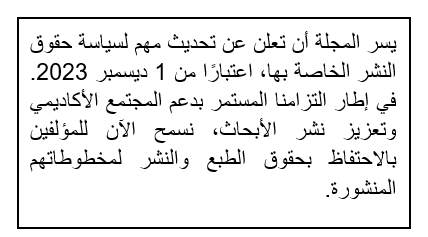
 ©️ 2023 The Author(s). Published by College of Political Science, University of Baghdad. This is an Open Access article distributed under the terms of the
©️ 2023 The Author(s). Published by College of Political Science, University of Baghdad. This is an Open Access article distributed under the terms of the 